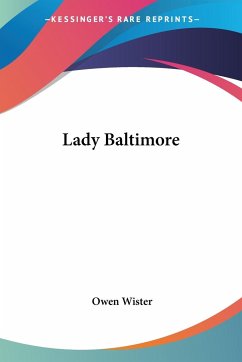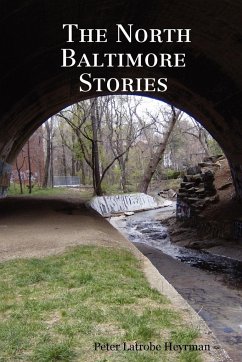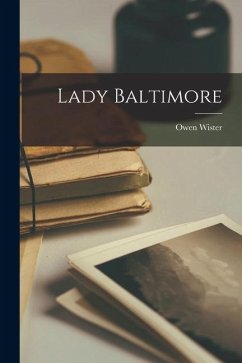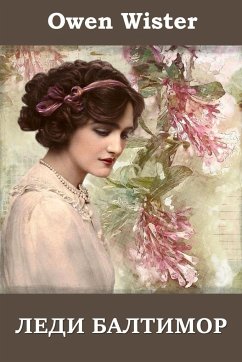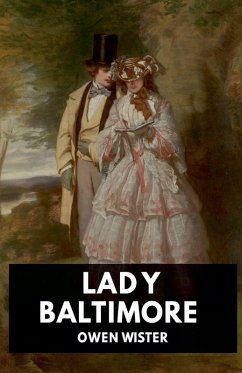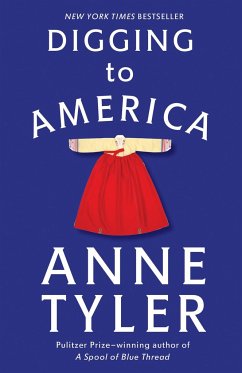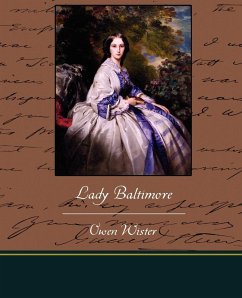
Lady Baltimore
Versandkostenfrei!
Versandfertig in 1-2 Wochen
25,99 €
inkl. MwSt.

PAYBACK Punkte
13 °P sammeln!
Owen Wister was an American writer known for his western novels. He attended Harvard Law School and practiced law in Philadelphia. Wister was fascinated with the culture, lore and terrain of the west. Wister's most famous work is the 1902 novel The Virginian, which is considered to be the first cowboy novel. Wister considered a career in music, worked in a bank and studied law. Philosophy 4 is set at Harvard. Set in the early 1900s in South Carolina, Lady Baltimore is a discussion between a Northern visitor and several different Southerners. Wister shows much sympathy for the plight of the upp...
Owen Wister was an American writer known for his western novels. He attended Harvard Law School and practiced law in Philadelphia. Wister was fascinated with the culture, lore and terrain of the west. Wister's most famous work is the 1902 novel The Virginian, which is considered to be the first cowboy novel. Wister considered a career in music, worked in a bank and studied law. Philosophy 4 is set at Harvard. Set in the early 1900s in South Carolina, Lady Baltimore is a discussion between a Northern visitor and several different Southerners. Wister shows much sympathy for the plight of the upper echelon white Southerners who felt they lost a complete way of life after the Civil War. Wister does an excellent job of putting the reader in the 1900¿s Southern scene. You fell as though you are n the streets of King's Point, in the churchyard cemetery with the hero and in his friend, at the boarding house dinner table, and on the bottom of a boat moored on a woodland stream.



